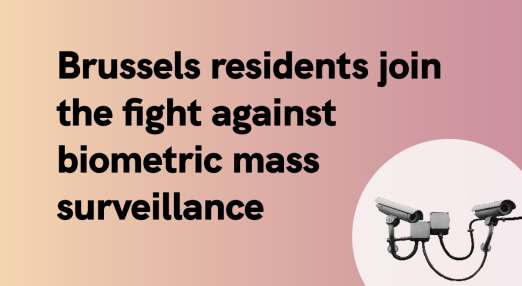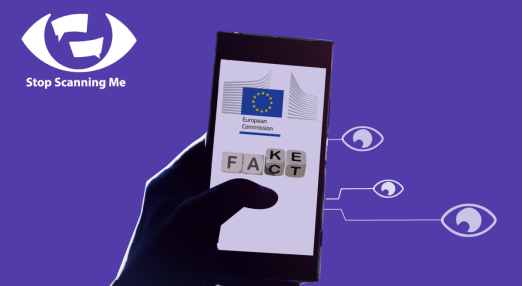As AI Act vote nears, the EU needs to draw a red line on racist surveillance
The EU Artificial Intelligence Act, commonly known as the AI Act, is the first of its kind. Not only will it be a landmark as the first binding legislation on AI in the world – it is also one of the first tech-focused laws to meaningfully address how technologies perpetuate structural racism.
Filter resources
-

As AI Act vote nears, the EU needs to draw a red line on racist surveillance
The EU Artificial Intelligence Act, commonly known as the AI Act, is the first of its kind. Not only will it be a landmark as the first binding legislation on AI in the world – it is also one of the first tech-focused laws to meaningfully address how technologies perpetuate structural racism.
Read more
-

Retrospective facial recognition surveillance conceals human rights abuses in plain sight
Following the burglary of a French logistics company in 2019, facial recognition technology (FRT) was used on security camera footage of the incident in an attempt to identify the perpetrators. In this case, the FRT system listed two hundred people as potential suspects. From this list, the police singled out ‘Mr H’ and charged him with the theft, despite a lack of physical evidence to connect him to the crime. The judge decided to rely on this notoriously discriminatory technology, sentencing Mr H to 18 months in prison.
Read more
-

Spyware is only the tip of the iceberg: we need to protect journalists from all forms of surveillance
The EDRi network published amendments and recommendations for the European Media Freedom Act (EMFA) proposal calling for comprehensive protection for journalists, journalistic sources and human defenders against surveillance measures.
Read more
-

France becomes the first European country to legalise biometric surveillance
EDRi member and Reclaim Your Face partner La Quadrature du Net charts out the chilling move by France to undermine human rights progress by ushering in mass algorithmic surveillance, which in a shocking move, has been authorised by national Parliamentarians.
Read more
-

Unprecedented appearance by European Commissioner for Home Affairs, innovating on quicksand, and the cabinet vs. online confidentiality
Read through the most interesting developments at the intersection of human rights and technology from the Netherlands. This is the second update in this series.
Read more
-

Mapping the impact of biometric surveillance and social media platforms on civic space
The European Center for Not-for-Profit Law is concerned about safeguarding human rights and limiting the negative impacts of security technology on civil society. Therefore, they launched a report with partners as a step to investigate how technologies introduced in the name of security and counter-terrorism will impact civil society.
Read more
-

Protect My Face: Brussels residents join the fight against biometric mass surveillance
The newly-launched Protect My Face campaign gives residents of the Brussels region of Belgium the opportunity to oppose mass facial recognition. EDRi applauds this initiative which demands that the Brussels Parliament ban these intrusive and discriminatory practices.
Read more
-

Who does the EU legislator listen to, if it isn’t the experts?
There's a huge gap between the advice given by experts on combatting child sexual abuse and the legislative proposal of the European Commission.
Read more
-

Poll: Young people in 13 EU countries refuse surveillance of online communication – Press Release
According to the results of the survey, 80% of young people aged 13 to 17 years old from 13 EU Member States would not feel comfortable being politically active or exploring their sexuality if authorities were able to monitor their digital communication, in order to look for child sexual abuse.
Read more
-

European Commission must have greater ambition in combating sexual violence
Last year, the European Commission made a far-reaching proposal to protect children against sexual violence. But a study by Delft University shows that there is a lot wrong with the substantiation of the proposal.
Read more
-

PEGA Committee must call for an EU-wide ban on spyware
The European Parliament’s inquiry committee on Pegasus and other similar spyware (PEGA) is working on a set of recommendations for the regulation of the use of intrusive spyware by EU Member States. It is still unclear whether the Committee will dare to set vitally needed red lines and call for a sufficiently protective European Union-wide framework against spyware in its non-binding report. EDRi submitted amendments to strengthen the demands for the protection of affected people and democratic values.
Read more
-

EU to provide training on “covert techniques” to abusive police forces
The European Police College is to train a host of states with miserable human rights records on the use of “covert techniques in forensics and mobile telecommunications” and will provide “training activities related to cyber-attacks in order to build capacities for law enforcement, judicial authorities and other relevant bodies.”
Read more
